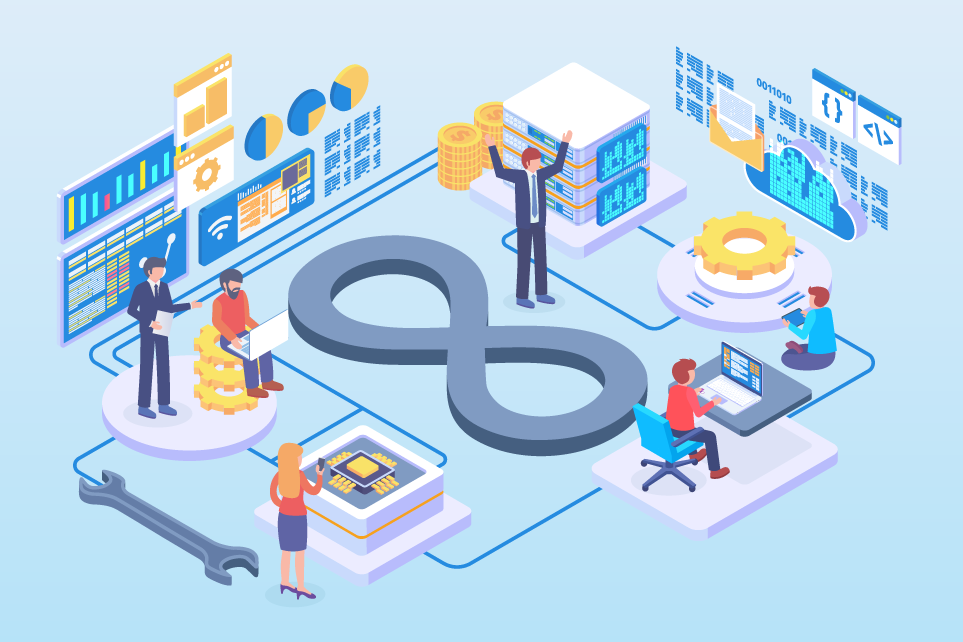DataOps, a methodology that combines data management and operations, is becoming increasingly essential for IT companies. It focuses on improving the collaboration, integration, and automation of data flows across the entire data lifecycle, from data preparation and integration to delivery and operations. Here’s how IT companies can take advantage of DataOps:
1. Enhanced Collaboration and Communication
Benefit
DataOps fosters collaboration between data engineers, data scientists, and business stakeholders. By breaking down silos, it ensures that everyone involved in the data lifecycle works towards common goals.
Implementation
- Integrated Tools: Use collaboration tools that facilitate real-time communication and project management.
- Shared Repositories: Maintain centralized repositories for data, code, and documentation to ensure transparency and accessibility.
2. Improved Data Quality
Benefit
By implementing automated testing and monitoring, DataOps helps maintain high data quality and reliability.
Implementation
- Continuous Testing: Integrate automated testing at every stage of the data pipeline to catch and resolve issues early.
- Data Profiling: Regularly profile data to understand its quality and characteristics, enabling proactive management of data quality issues.
3. Faster Time-to-Insight
Benefit
DataOps streamlines data workflows, reducing the time taken to deliver insights and analytics.
Implementation
- Automated Pipelines: Automate data ingestion, transformation, and delivery processes to accelerate data flow.
- Iterative Development: Adopt agile methodologies to deliver incremental improvements and insights continuously.
4. Scalability and Flexibility
Benefit
DataOps enables IT companies to scale their data operations efficiently while adapting to changing business needs.
Implementation
- Cloud Integration: Utilize cloud services to scale infrastructure on-demand, ensuring flexibility and cost-effectiveness.
- Modular Pipelines: Design modular and reusable data pipelines that can be easily modified or extended as requirements evolve.
5. Enhanced Data Security and Compliance
Benefit
DataOps incorporates security and compliance into the data lifecycle, ensuring that data governance standards are met.
Implementation
- Automated Compliance Checks: Implement automated checks to ensure data handling complies with regulations like GDPR, HIPAA, etc.
- Data Lineage: Maintain detailed data lineage records to track data flow and transformations, ensuring transparency and accountability.
6. Reduced Operational Costs
Benefit
By automating repetitive tasks and optimizing data workflows, DataOps helps reduce operational costs.
Implementation
- Infrastructure Optimization: Use monitoring tools to optimize resource utilization and reduce waste.
- Cost-Effective Tools: Leverage open-source tools and frameworks where possible to minimize licensing costs.
7. Continuous Improvement
Benefit
DataOps promotes a culture of continuous improvement, enabling IT companies to adapt and evolve their data practices over time.
Implementation
- Feedback Loops: Establish feedback loops to continuously gather insights and improve data processes.
- Metrics and KPIs: Define and monitor key performance indicators to measure the effectiveness of DataOps practices and identify areas for improvement.
Conclusion
DataOps offers IT companies a structured approach to managing and operationalizing data, leading to enhanced collaboration, improved data quality, faster insights, scalability, better security, reduced costs, and continuous improvement. By adopting DataOps practices, IT companies can unlock the full potential of their data, driving innovation and competitive advantage.

